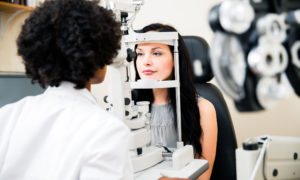Jan. 4, 2023

Artificial intelligence in healthcare is just getting started. Here are six predictions of how this technology will be optimized in healthcare in the New Year, according to Kolawole Samuel Adebayo, who reported about this recently in VentureBeat.
Personalized Healthcare Will Be an Even Greater Focus
“Several experts believe the coming year will usher in a greater drive for personalized healthcare, aided by increasing volumes of data in the industry. IDC predicts that ‘the global datasphere will grow from 33 zettabytes of data in 2018 to 175 zettabytes by 2025’— a fivefold increase from 2018’s figures. Morris Laster, medical investments partner at Israeli venture capital firm OurCrowd, told VentureBeat that this increase in data will put the spotlight on personalized healthcare,” Adebayo writes.
Micha Breakstone, co-founder and CEO at Neuralight, told Adebayo that AI’s range in healthcare will get increasingly personalized, so “specific treatment can be generated based on the patient’s profile, genetics, environment and lifestyle in order to optimize patient outcomes.”
Legislation & Regulations Around Healthcare AI Will Improve
Ayanna Charles, solutions consultant at predictive software company Verikai, believes that legislation and regulations will get better next year. “In the short term, legislative and regulatory bodies at both the state and national levels are getting more aggressive in their oversight of data sharing and the use of AI in healthcare,” she told Adebayo. “Large insurers and healthcare providers are inherently conservative, so we expect more guidance regarding what constitutes acceptable use of data and AI.”
There Will Be More Efforts to Tackle AI Bias
Charles noted that 2023 will see the beginning of a reduction in biases for AI in healthcare.
“Anybody using AI in healthcare must consider the bias that exists within the health system as it exists today before building and deploying any models,” she told Adebayo. “At worst, they may blindly build and deploy a model that propagates and reinforces existing bias. At best, though, AI models can be used to reduce and remove discrepancies within the health system.”
Other Articles to Explore
A Wider Range of Applications in Healthcare
OurCrowd medical analyst Tzvi Bessler said AI will continue to play an increasingly important role in healthcare over the next five years — beginning in 2023.
“This will likely involve the development of more sophisticated and intelligent AI systems that can make more accurate and reliable predictions and recommendations,” Bessler told Adebayo.
A Closer Working Relationship Between Humans & AI
Charles foresees a closer nexus between humans and machines.
“As with all new technologies, AI technologies should not be treated as the single solution to the business problem facing an organization,” she explained to Adebayo. “Implementing any AI solution requires technologists to establish and maintain a sound governance structure — one that marries the solution with human oversight, consistent policies and solid procedures.”
Automation, Automation & More Automation
A recent analysis by McKinsey suggests that “AI-enabled personal assistants can automate 50-75 percent of manual tasks, boosting efficiency, reducing costs and freeing clinicians to focus on complex cases and actual care delivery and coordination. This, in turn, may improve the healthcare experience for both clinicians and insurance plan members.”

























